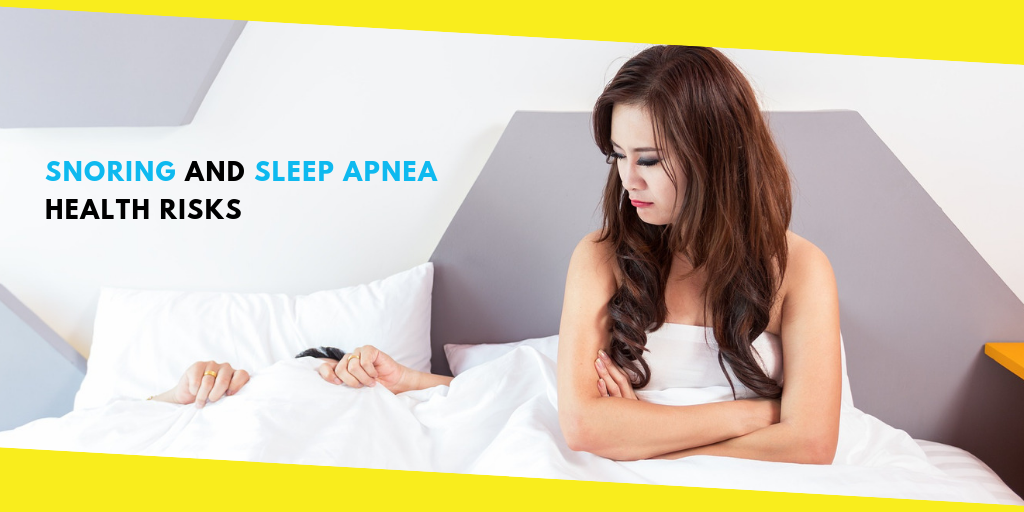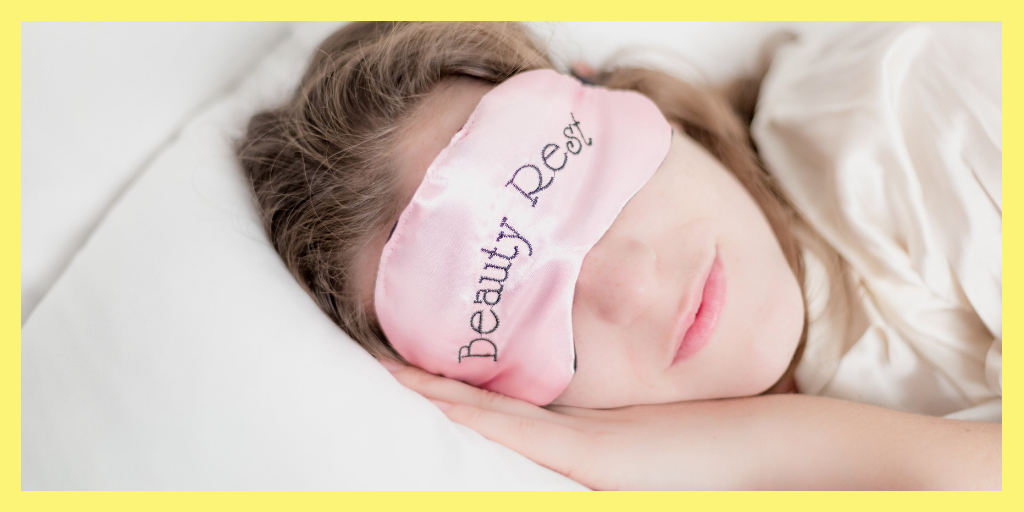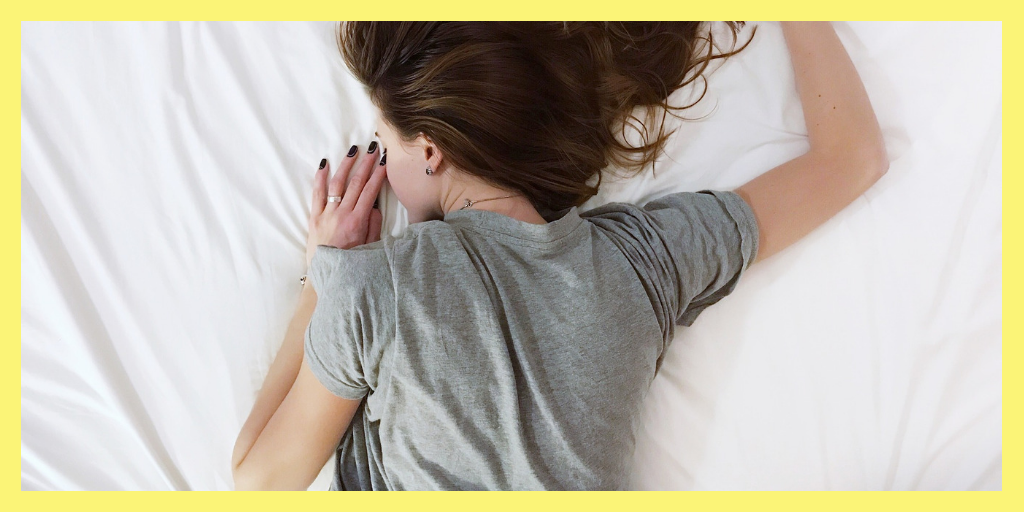Snoring and Sleep Apnea Health Risks

Snoring is common—so common, in fact, that most sources report that up to 90 million Americans have dealt with the condition at one point or another. For many people in this category, purchasing one of the many products to stop snoring seems to do the trick.
Unfortunately, snoring isn’t something that’s so easily rid of—and what’s worse? Snoring can be indicative of sleep apnea, which can put you in serious risk of a host of health problems.
Contents
ToggleWhat is Sleep Apnea?
To better understand the risk of snoring, we need to understand the underlying issue of sleep apnea.
Sleep apnea, in its most basic form, is a condition in which the body periodically stops breathing in the night. Snoring may be a sign of the body stopping and starting back up again, but it isn’t the only symptom of the conditions. Other signs of sleep apnea include:
- Daytime fatigue
- Insomnia
- Nightmares
- Snoring
- Dry Mouth
- Mood Swings
- Weight Gain
These signs will help alert you to the difference between snoring and developing a condition that can present serious health risks to you or to a loved one.
Those with sleep apnea have to come to terms with an increased risk of several disorders and conditions. These include diabetes, behavioral disorders, heart attacks, and in some cases, cancer.
Luckily, there are many ways to combat sleep apnea. Decreasing snoring and taking preventative action may do more than help your partner sleep in peace. It may just save your life.

Preventative Measures to Sleep Apnea
The first thing any doctor or licensed physician will do when telling you what to do about your sleep apnea is often to lose weight.
Why? Excess weight puts a significant strain on the muscles surrounding the airways and lungs. The extra weight may be what puts you over the edge and triggers your snoring.
Losing extra weight is also beneficial for other reasons as well. Those that manage a healthy weight can hope to reduce their risk of developing heart conditions hypertension.
Aside from losing weight, you can also work to sleep better to decrease sleep apnea as a factor of bad sleeping habits.
Ask yourself this—how well do you sleep? Do you sleep the same number of hours each night? How about at the same time?
Sleep deprivation has been known to affect the body in more ways than one. To reduce these symptoms as well as your issues with sleep apnea, consider implementing the following in your home:
- Go to bed at the same time each night
- Only sleep in your bedroom-never work
- Eliminate screens like televisions and phones from the bedroom
- Wake up at the same time each morning
- Keep your room at a comfortable temperature
- Eliminate noise pollution
These basic tips will give you the foundation you need to better your sleep. The more rested your body is, the less likely you’ll suffer from sleep apnea conditions.
Mattresses & Sleep Apnea

Did you know that there are mattresses on the market that will reduce your sleep apnea symptoms?
All too often, uncomfortable beds or beds that push hard on the body with pressure points will reduce your sleep quality and start up your snoring. This can be prevented with the right product.
Purchasing a new mattress, if you haven’t in recent memory, can help you get a better night’s rest—and if the mattress is specifically designed for sleep apnea, you won’t need to worry about other problems stemming from your sleep choice.
You can also choose to combine preventative measures to introduce into your routine. For example, if you’re struggling to get your snoring in check, try using a sleeping apparatus like a CPAP machine alongside a memory foam mattress.
Every sleeper is different, so there is no one miracle product that will work for everyone. Taking the time to experiment and understand what your body responds best to is going to be better for you in the long run.
Final Thoughts
While there are many risk factors associated with sleep apnea, there are just as many ways that you can reduce the threat of the condition.
With the right combination of preventative measures, you can get back to sleeping soundly once again.
Recommended For You
7 Ways To Boost Your Immunity
Most Inside
Most Inside offers high-quality recommendations and valuable updates to enhance all aspects of your life, providing premium guidance and enriching experiences.




